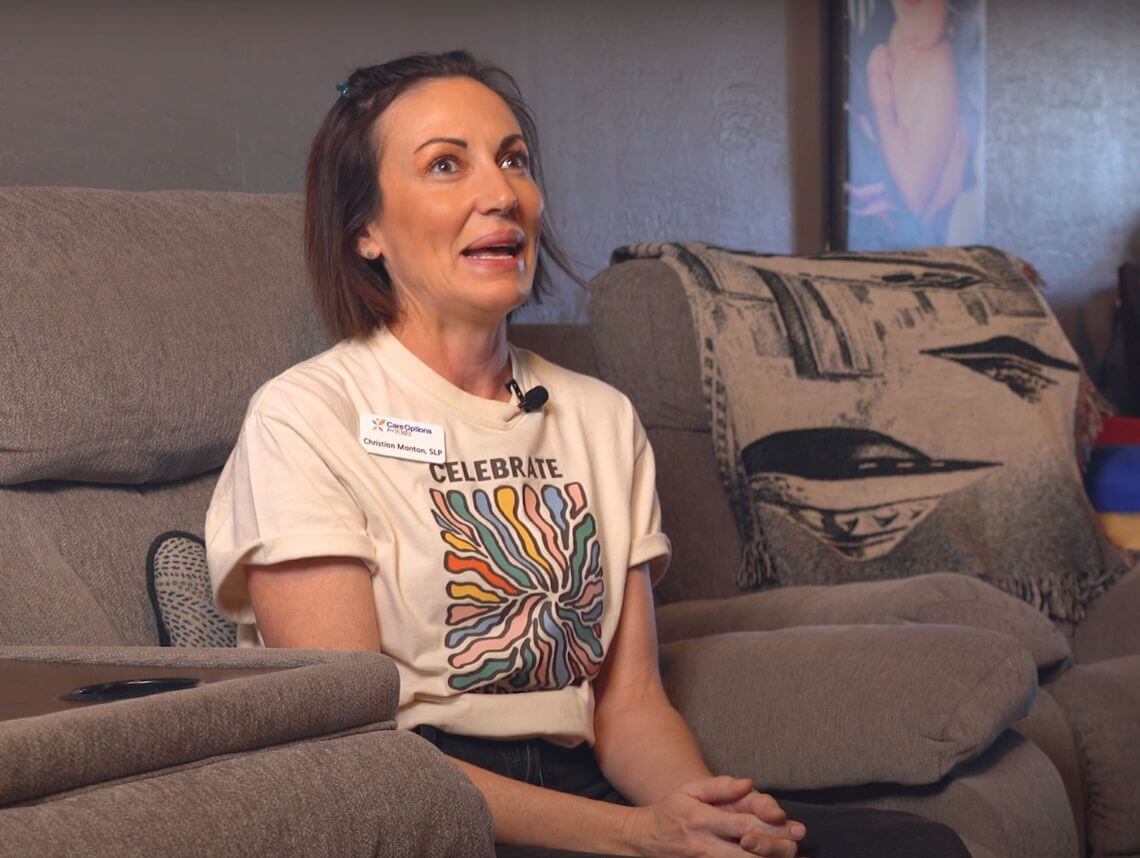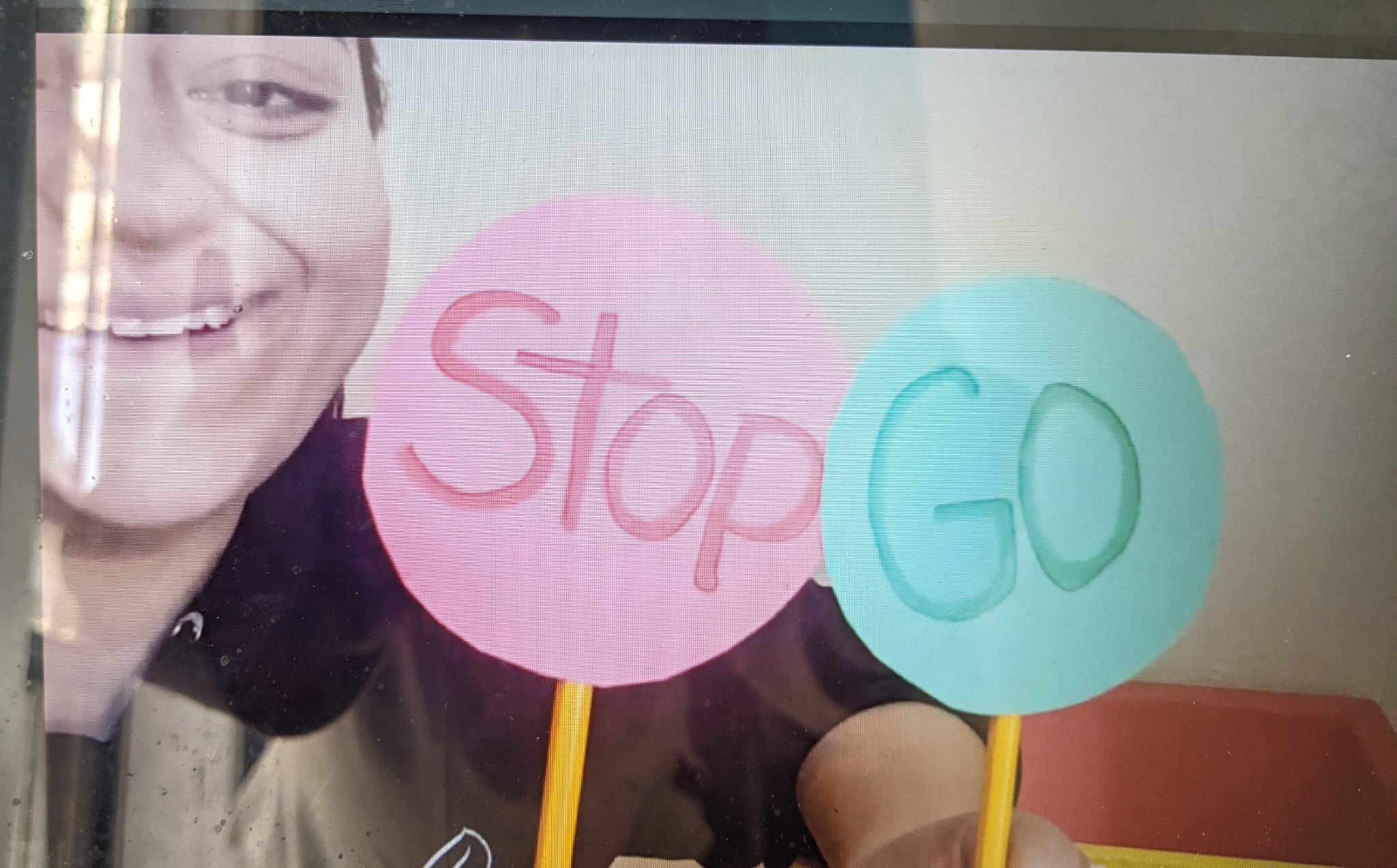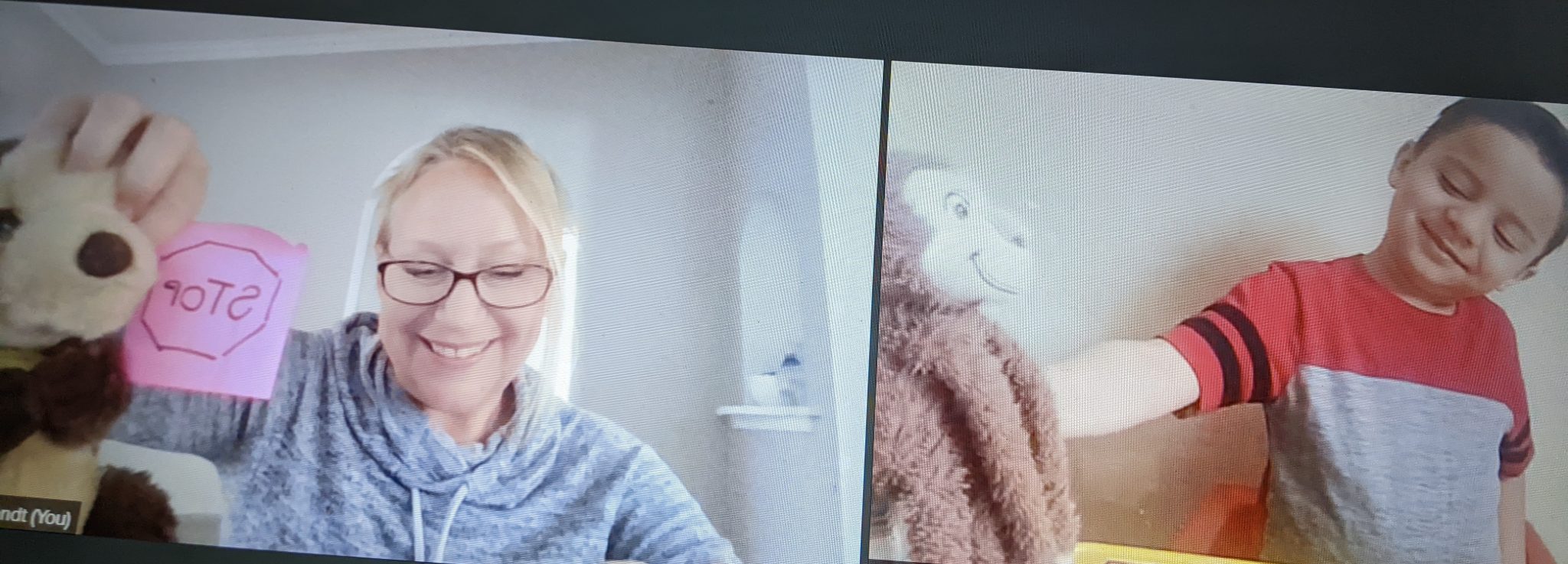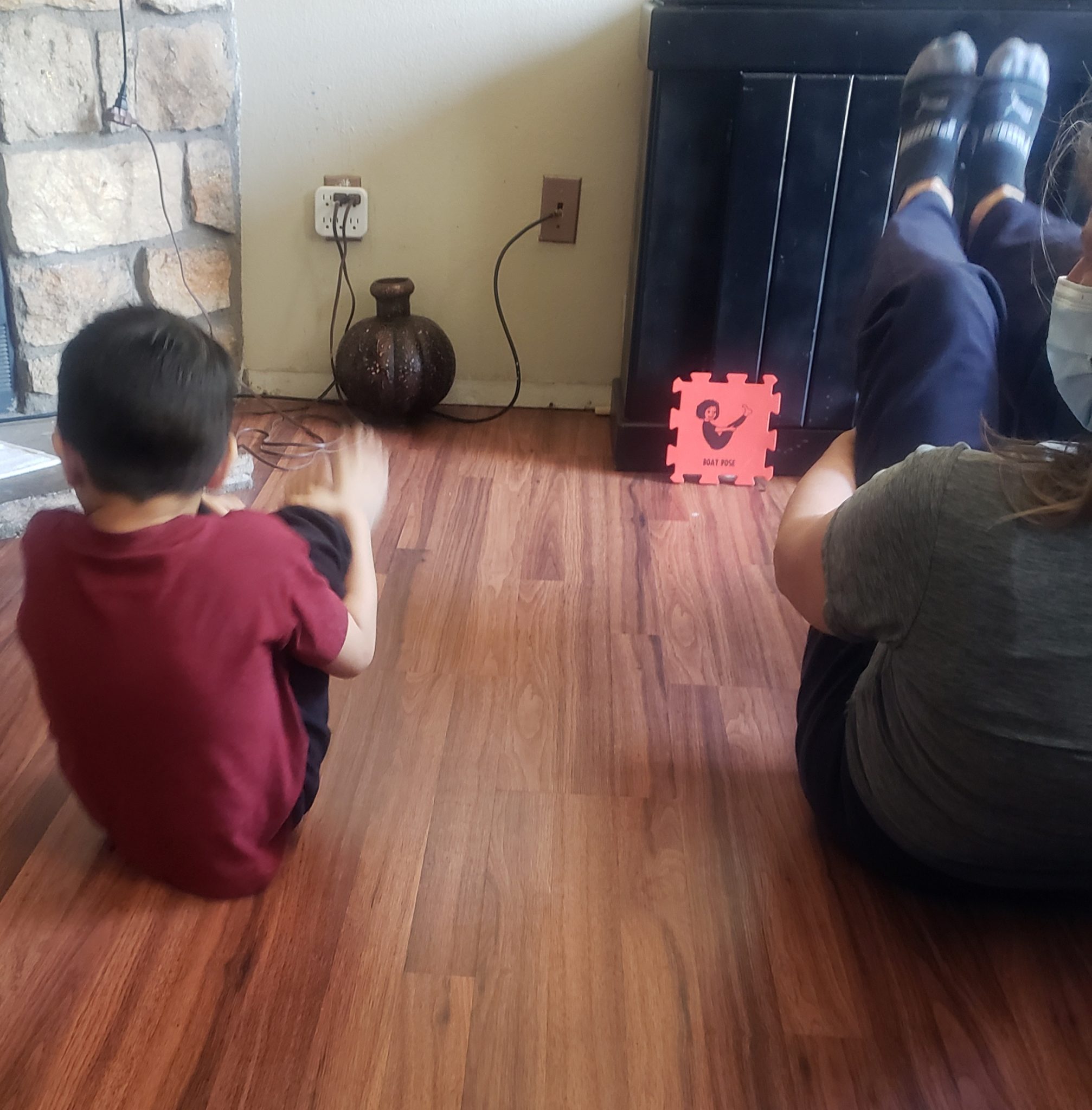Solace Blog
- Activities19
- Autism & Behavioral4
- Community154
- Early Intervention71
- Events & Giving Back20
- Extraordinary Kids22
- Family Caregiver4
- Home Care Therapy60
- News94
- Parent Articles83
- Patient Testimonial21
- Pediatric Therapy77
- Pediatric Therapy Career46
- Private Duty Nursing1
- School-Based Services1
- Telehealth Therapy27
- Tips & Advice66
Summer Reading List: Books to Inspire Therapist Growth
Cooling Off with Aquatic Therapy: Benefits and Best Practices
Sensory Activities For Kids

From School To Home: Christian’s Shift To Impactful Therapy
Speak, Listen, Connect: 6 Communication Strategies for Therapists

Alfonso Displaying Amazing Progress in Occupational, Speech Therapy Sessions
At two-years-old, Alfonso would often scream, cry and use jargon to communicate. He often ran away from non-preferred activities and rarely sat for more than two minutes during regular activities. This impacted his ability to respond to questions, practice coloring, engage in books and play with toys alongside others. His family was frustrated and didn’t know what he needed or how to help him communicate.
It was during his two-year check-up that Alfonso’s pediatrician noticed age level delays. After a comprehensive speech evaluation with Solace Pediatric Healthcare, specific goals were implemented to target attention, expressive, receptive and cognitive/play skills. At the time of evaluation, Alfonso exhibited the communication skills of a 15-month-old.

“Success with Alfonso has been the result of speech therapy twice a week and parent education/involvement, which is included in each session. Elia, the mother, is always prepared with recommended activities and often makes her own to show therapists,” said Daisy V, speech-language pathologist.
“Daisy is absolutely wonderful. She has done so much for Alfonso and our entire family. We have learned a lot and we appreciate her very much,” adds Elia.
Occupational Therapy
In March 2020 Alfonso was evaluated for occupational therapy when he was 27-months-old. Upon evaluation, he was non-verbal and spent the session repetitively lining up toys on a cabinet shelf, demonstrating little ability to imitate play or give shared engagement. At the time of evaluation, Alfonso exhibited fine motor skills of a 15-18-month-old. He could scribble with a crayon, stack three blocks and do a familiar peg puzzle. He could take off clothing (excluding shirt) by himself, but was unable to put on clothing without full assistance. Telehealth sessions began immediately afterward.

In April 2020, Alfonso started occupational therapy sessions once a week to address delays in coordination, activities of daily living (ADL) and visual perceptual skills. Some of the exercises and treatment methods include visual schedules, visual pictures to communicate, calming strategies, activities to improve sensory processing, sleep schedule support, potty training support, fine motor manipulation with writing tools, tongs, scissors and manipulation of toys and matching items in a puzzle.
“Elia is focusing on his independence in ADL and asking others for needs vs. mom. He needs verbal prompts to ask others vs. mom only. He engages with other peers by allowing joint play and sharing of toys and items. Elia would like his attention to improve with eye contact for increased joint skills,” adds Janese P, licensed occupational therapist.
“Alfonso has shown much better engagement and participation in learning activities when in-person sessions resumed. He has made good progress towards his therapy goals,” adds Janese P.
“We couldn’t be happier with Janese and all the time she has dedicated to Alfonso. She has worked with our family since the beginning and we are very grateful to her, adds Elia.
Alfonso’s Progress to Date
Alfonso has made progress expressing himself thus showing little behaviors. He is now able to request and protest wants and needs with 2-4 word phrases vs. screaming or running away. He can play with toys more appropriately and maintain attention to play with others. In addition, he is using 3-4 words on average with familiar sayings. This has reduced stress in the family as they can converse with him more, and can now understand his wants, needs and likes resulting in a happier Alfonso! He continues to work on communication to be near age level including, working on safety by understanding and following the word ‘stop.’

“Alfonso will continue to benefit from skilled speech and language interventions to help him improve his play-based skills to strengthen social interactions and pragmatic language skills, while focusing on increasing social reciprocity/turn taking and strengthening his receptive and expressive language skills,” adds Daisy V.
“Alfonso is doing great in speech therapy. He still needs some help, but he is learning every day and we know he will meet all future goals. He knows how to request different items and even says his name when asked,” adds Elia.
Alfonso has made great progress over the last two years during occupational therapy sessions. He is participating in shared activities, learning new skills through demonstration and repetition/practice. He has gained many skills and is now learning to trace over letters, use scissors and complete simple puzzles. He is working on understanding his body to use two hands simultaneously, following visual directions for exercises for improved body control and for the long term goal of pedaling his tricycle by himself. He is almost independent with dressing, and takes pride in completing things on his own.
“Overall, we have had a very positive experience with Solace Pediatric Healthcare. I am so happy that we have had the opportunity to reap the great results this program has to offer,” adds Elia.
How to Refer Your Child
Solace Pediatric Healthcare is the leading provider of pediatric nursing, family caregiver, occupational, physical, speech and feeding therapy services. Since 2005, our clinicians have provided pediatric care to children from birth to 21 years of age.
At Solace, we’ve instilled a culture built on trust, communication, teamwork and accountability. Our mission is to provide pediatric clinical services to help children and families live their best lives.
- I want to refer my child for an Evaluation/Therapy. If you know you would like to speak to our patient advocate to discuss scheduling an initial evaluation with a licensed pediatric therapist, simply complete and submit the Referral Form so we may contact you. Please provide as much information on the secure/encrypted form as possible as it is required to begin the process. We do accept Medicaid and most insurances.
- I Want to Be Contacted. If you would like to speak with our patient advocate for more information prior to submitting a Referral Form, simply complete the Contact Me Form and submit.
- If you prefer to contact us to discuss your child, please call our team. You can reach us by phone at: (Denver) 303.432.8487; (Colorado Springs) 719.623.5463; (Northern Colorado) 970.775.8476; and (Pueblo) 719.695.4535.
Share this Post